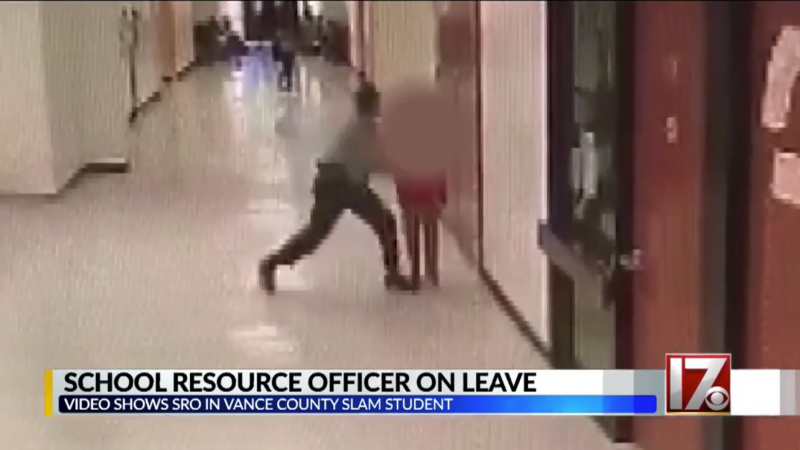
Increasing the number of police in schools doesn’t make school safer and leads to harsher discipline for infractions, according to a new study in the journal Criminology & Public Policy.
The longitudinal study, published by researchers at the University of Maryland and the firm Westat, looked at disciplinary offenses at 33 public middle and high schools in California that increased their number of school resource officers (SROs) in 2013 or 2014, and then compared them over time with 72 similar schools that did not. The study found that increasing the number of SROs led to both immediate and persistent increases in the number of drug and weapon offenses and the number of exclusionary disciplinary actions against students.
While the initial bump in offenses could be explained simply as an effect of increased policing, the boost in recorded crimes and exclusionary responses persisted for 20 months in the schools studied. The researchers say this suggests that rather than deter crime in schools, increasing the number of SROs leads to more “formal responses to behaviors that otherwise would have been undetected or handled informally.”
“Our findings suggest that increasing SRO staffing in schools does not improve school safety and that increasing exclusionary responses to school discipline incidents increases the criminalization of school discipline,” Denise Gottfredson, professor emerita at the University of Maryland Department of Criminology and Criminal Justice, said in a statement.
The study’s findings come as school districts across the country are reconsidering the use of SROs in the wake of national demands for policing reforms. The number of police in schools has skyrocketed in schools over the past four decades, first in response to drugs and then mass shootings. Police departments and organizations like the National Association of School Resource Officers argue that well-trained SROs act as liaisons between the school and police department.
Earlier this month, Chicago Public Schools slashed its school police budget by more than half. So far, San Francisco is the largest school district to move toward defunding its SRO program. The Oakland school board also voted unanimously to eliminate the district’s police department and shift its $2.5 million budget to student support services. Minneapolis, Denver, Seattle, Charlottesville, and Portland, Oregon, have also ended or suspended relationships with local police.
Civil liberties groups and disability advocates have long argued that increases in school police and zero-tolerance policies for petty disturbances have fueled the “school-to-prison” pipeline and led to disproportionate enforcement against minorities and students with disabilities. (The study did not find a significant change in criminal referrals and exclusionary actions against special needs students.)
As with policing at large, viral videos of excessive force and small children being arrested have sparked national outrage.
Last week, body camera footage emerged showing police officers in Key West, Florida, trying and failing to handcuff an eight-year-old boy, whose wrists were too small for the cuffs. And an Orlando SRO made headlines last September when he arrested a six-year-old girl.
In February, a school resource officer at a high school in Camden, Arkansas, was relieved of duty after video showed him putting a student in a chokehold and lifting the student off the ground. Last December, a North Carolina SRO was fired after he brutally body-slammed a middle-schooler. In November, a Broward County sheriff’s deputy in Florida was arrested and charged with child abuse after a video showed him body-slamming a 15-year-old girl at a special needs school.
Chicago activists who want to defund the school system’s police program have cited a 2019 video in which Chicago police officers kick, punch, and tase a 16-year-old girl.
The study recommends that “educational decision-makers seeking to enhance school safety consider the many alternatives to programs that require regular police presence in schools.”
from Latest – Reason.com https://ift.tt/3l1c2b7
via IFTTT